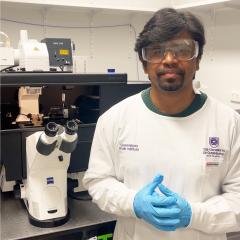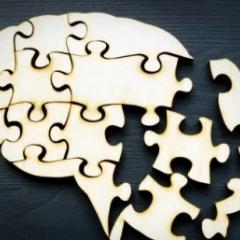A disrupted body clock can lead to sleep and psychiatric disorders, heart disease, type-2 diabetes and obesity, a University of Queensland review has found.
People who significantly alter their daily routines on a regular basis, such as shift workers, compromise their body’s ability to function.
School of Biomedical Sciences Lecturer Dr Oliver Rawashdeh said most people don’t realise how serious the implications of fighting the body clock can be.
“Our biological clock, or circadian rhythm generator, is important for the regulation of sleep and wake cycles, as well as our hormone rhythms,” Dr Rawashdeh said.
“Perhaps a good way to describe this relationship is to think of these circadian rhythms as the symphony and the clock as the conductor.
“The body depends on these rhythms to maintain its balance and function properly.
“When you have any disturbance to this balance – such as what happens with shift work or jetlag – this causes your inner biological clock to become disrupted from the natural rhythm of daytime and night time.
“If this disruption is maintained long term, it can cause severe health problems."
Dr Rawashdeh said night shift workers were particularly at risk of severe health impacts.
“If you are working at night, you obviously need to eat but your body isn’t physically ready to properly digest food,” he said.
“Irregular eating habits disrupt the body clock which negatively influences metabolism, leading to health issues like obesity, diabetes, and cardiometabolic diseases.
“Long term, so long as you are consistently working night shifts, the body will adjust somewhat.
“But people working rotating shifts where the body is constantly having to adjust to different schedules face much higher health risks.”
Dr Rawashdeh said maintaining a routine was important to reinforce the body clock, regardless of whether someone worked during the day or night.
“Try to create your own daily schedule where you’re eating and sleeping around the same time every day, and more importantly stick to it,” he said.
“A set routine allows you to synchronize your internal clock and become more in sync with your environment.
“When your internal clock is able to stay in sync, your daily health will be improved.”
The review was a collaboration between the University of Luebeck, Goethe University of Frankfurt, the Mater Research Institute and UQ, and is published in Endocrine Reviews. (doi.org/10.1210/er.2018-00049)
Media: Dr Oliver Rawashdeh, o.rawashdeh@uq.edu.au, +61 7 3365 2706; Faculty of Medicine Communications, med.media@uq.edu.au, +61 7 3365 5118.



